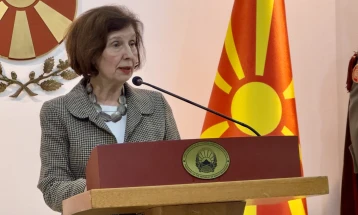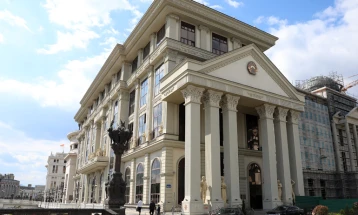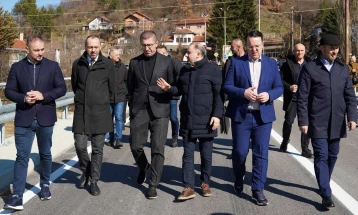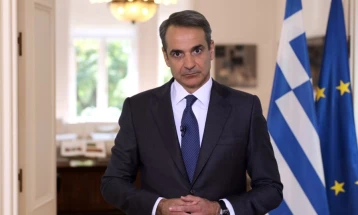IRI poll: Western Balkans losing patience with wait to join EU
- Western Balkan countries are starkly split between the West and Russia, with the once-strong support for European Union accession now shrinking, shows a recent poll by the International Republican Institute (IRI), Voice of America in Macedonian reports.
- Post By Nevenka Nikolik
- 17:36, 2 May, 2024
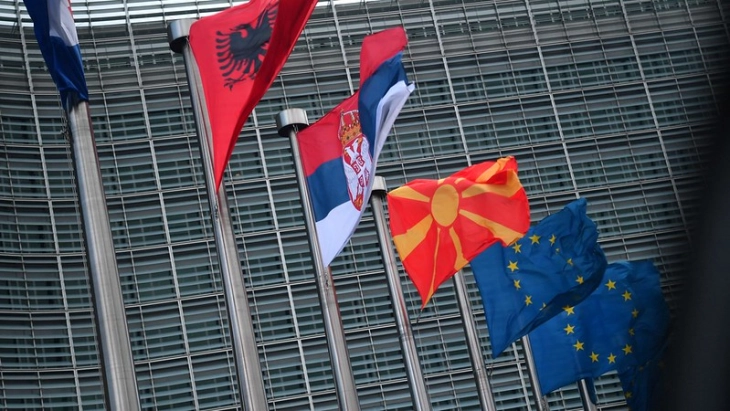
Washington, 2 May 2024 (MIA) - Western Balkan countries are starkly split between the West and Russia, with the once-strong support for European Union accession now shrinking, shows a recent poll by the International Republican Institute (IRI), Voice of America in Macedonian reports.
The results of the February-March poll, which the Washington-based research group conducted in Albania, Bosnia and Herzegovina, Kosovo, Montenegro, North Macedonia and Serbia, comes as the region faces renewed ethnic tensions amid an EU enlargement slowdown and a rise in pro-Russian sentiment.
The poll found that overwhelming majorities in Albania and Kosovo want their countries to pursue an unequivocally pro-European Union and pro-Western course, while only 10 percent of the respondents in Serbia gave the same response.
A majority of the Serbs polled indicated they want Serbia either to maintain ties to Russia or pursue a pro-Russian foreign policy.
The poll found that 39 percent of the respondents in Bosnia and Herzegovina, 36 percent of the respondents in Montenegro and 31 percent of the respondents in North Macedonia supported an unequivocally pro-Western course.
"Generally, the pro-Western trend in the region is strong, with a couple of notable exceptions," Paul McCarthy, the IRI’s director for Europe, told the Voice of America.
"Serbia goes against the grain of the other five countries in the region; it is more pro-Russian, blames the West for the conflict in Ukraine, has very low approval ratings for joining the European Union."
McCarthy said that pro-Western tendencies have also softened in Montenegro and North Macedonia, despite having become NATO members, as well as in Bosnia, where Turkey has replaced the United States as the key ally of Bosnian Muslims.
Serbs also oppose NATO membership: Only 3 percent of the poll’s respondents in Serbia said they supported it.
"People are losing patience with the wait to join the European Union. Part of this is also explained by the fact that Ukraine has been invited and other countries, whereas in most cases Western Balkan countries have been waiting for over two decades in the line to join the European Union," said McCarthy.
"Support for the EU accession is beginning to soften around the edges in those countries where it was very, very strong."
Still, IRI’s poll found that, with the exception of Serbia, resounding majorities in the five Balkan countries would still vote for joining the EU.
In Serbia, 40 percent of the poll’s respondents said they would vote in favor of EU membership, while 34 percent would vote against it and 17 percent would not vote.
McCarthy said anti-EU attitude in Serbia is fostered by its government, which uses media to encourage people to abandon EU membership hopes and "emphasize relationships with foreign authoritarian actors such as Russia and China."
Western Balkans’ geopolitical splits were also evident in the poll of respondents’ attitudes toward Russia’s invasion of Ukraine.
The poll found that 43 percent of Serbs, 27 percent of Macedonians and 25 percent of Montenegrins blame the West for the war between Russia and Ukraine.
Majorities of the respondents in Albania, Kosovo, Montenegro and North Macedonia said that Russia’s actions in Ukraine are "somewhat" or "completely" unjustified, a view shared by 37 percent of the respondents in Serbia.
Who counts as an ally and who as a foe?
Longstanding disagreements and ethnic disputes continue to cast a shadow over the Western Balkans more than three decades after Yugoslavia’s disintegration led to bloody wars.
Eighty-three percent of Kosovars view Serbia, which rejects Kosovo’s independence, as a threat, while 68 percent of Albanians in Albania view Serbia and Russia as the main danger for their country.
Majorities in Kosovo and Albania view the United States, which is credited for leading the 78-day NATO intervention in 1998-1999 to stop Serbia’s ethnic cleansing of Kosovo’s Albanian majority, as their countries’ key ally.
In Bosnia, Turkey is viewed as the biggest ally and Serbia as the biggest threat, while 34 percent of Macedonians see Serbia as their main ally while viewing Bulgaria, which has blocked North Macedonia’s EU accession path, as their top foe.
In Montenegro, 32 percent of the International Republican Institute’s poll respondents named Serbia as their country’s most important ally while 19 percent named the United States as its most important threat.
In Serbia, 36 percent of the respondents named the U.S. as the country’s main threat and Russia as its key ally.
Photo: MIA archive

